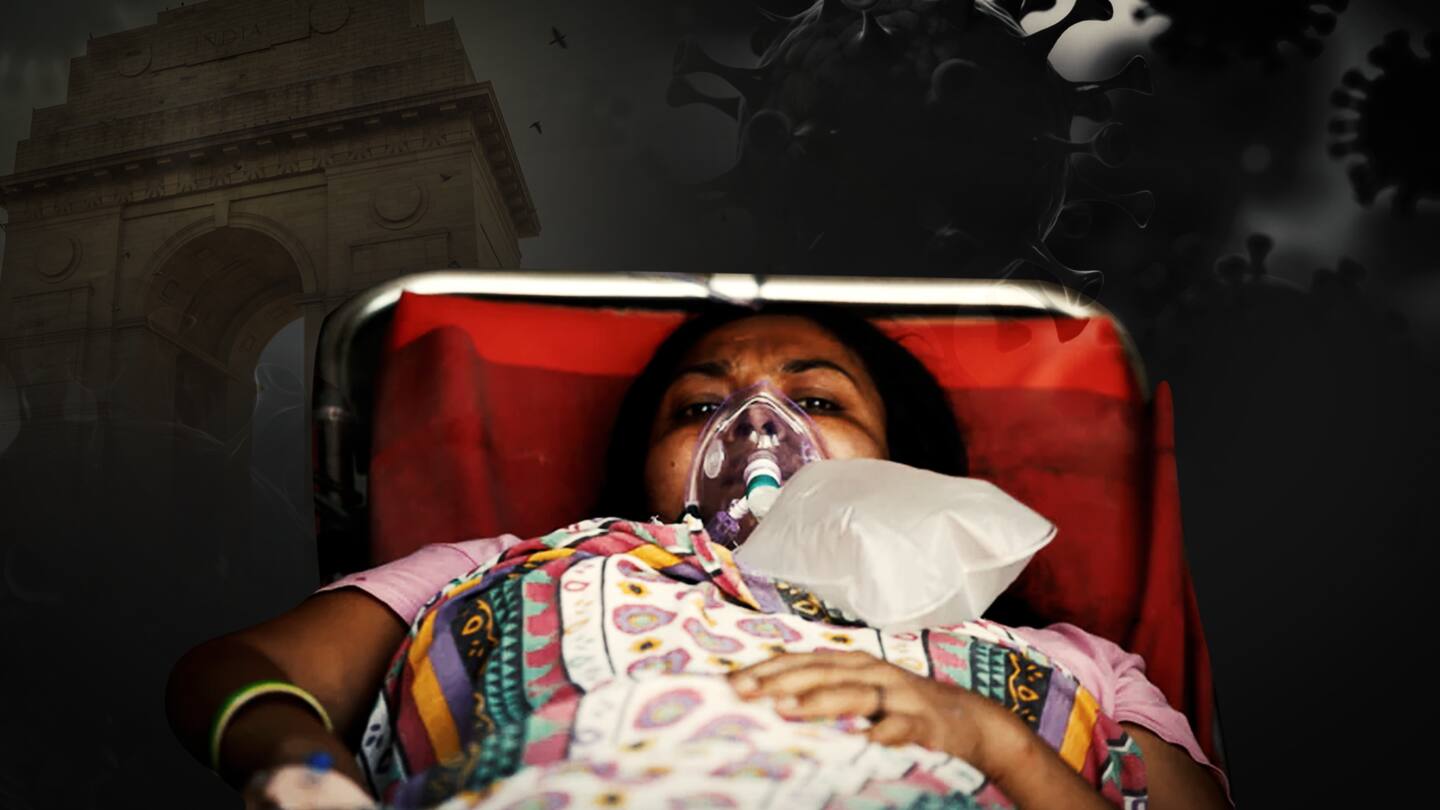
COVID-19-induced 'Black fungus' cases reported in Delhi. What is it?
What's the story
Even as a deadly second wave of the coronavirus continues to batter India, doctors at a top Delhi hospital have again reported several cases of a rare fungal infection among recovering patients.
Mucormycosis, also known as Black fungus, triggered by COVID-19, had last year led to the death of several patients while some lost their eyesight.
Here are more details on this.
Where?
Where are the cases being reported?
A doctor at the Sir Ganga Ram Hospital said the facility has admitted six patients with mucormycosis infection just in the past couple of days.
"We are seeing a rise again in this dangerous fungal infection triggered by COVID-19...Last year, this deadly infection caused a high mortality with many patients suffering from the loss of eyesight (sic)," said Dr. Manish Munjal, according to PTI.
Details
What is mucormycosis?
According to the US Centre for Diseases Control and Prevention (CDC), the fungal infection is caused by a group of molds known as mucormycetes.
These molds, present naturally in the environment, affect a person when their immune system is weakened.
They affect the lungs/sinuses after inhalation of fungal spores from the air.
The fungus can also enter the body through open wounds or cuts.
Quote
The infection does not spread from person to person: CDC
"These fungi are not harmful to most people. However, for people who have weakened immune systems, breathing in mucormycete spores can cause an infection in the lungs or sinuses," the CDC had said last year, adding that the infection is not contagious.
Risk factors
Who is at risk of getting infected?
According to Dr. Ajay Swaroop, Chairman, Department of ENT at the Sir Ganga Ram Hospital, the use of steroids in the treatment of COVID-19 patients could be a reason behind the rise in infections.
He informed the infection is most commonly seen in patients who have recovered from the coronavirus but have comorbidities such as diabetes, kidney or heart disease, or cancer.
Treatment
What is the treatment for mucormycosis?
Dr. Munjal said that early diagnosis and timely treatment can help in successfully treating the infection.
"Early clinical suspicion on symptoms such as nose obstruction, swelling in the eyes or cheeks and black crusts in the nose should immediately prompt a biopsy and start of antifungal therapy as early as possible," he was quoted as saying by PTI.
Situation
The COVID-19 situation in India
The news comes when India has been gripped by a dreadful second wave of the coronavirus pandemic amid an overburdened healthcare infrastructure.
In the past 24 hours, the country logged 4.14 lakh new COVID-19 cases - the highest-ever one-day surge for any country.
It also recorded over 3,900 more deaths.
India's COVID-19 peak is expected in a few days, according to experts.